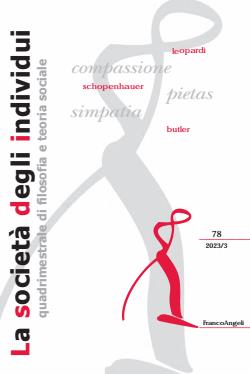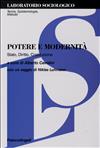
LIBRI DI MATTEO BORTOLINI




Stato, diritto, costituzione
cod. 1042.49

Comportamenti socio-religiosi veso i defunti in un contesto di Terza Italia
cod. 243.2.4


cod. 1534.4.1

This essay tries to understand modern political and legal culture by interpreting the meaning of the right to privacy in relationship with the liberal idea of the neutral State in American constitutional and federal jurisprudence. The authors understand the political consequences of the right to privacy as privatization (as in the free exercise clause and the disestablishment clause) or generalization (as in the equal access clause). They rely on Talcott Parsons’ interpretation of American values to show the importance of individualism and universalism in American culture. The case of homosexual people’s right to marry is analyzed to show how different spheres of society are differently open to individual choice.

Two models of associative democracy (those proposed by Paul Hirst and Joshua Cohen and Joel Rogers) are compared as possible solutions to the recurrent crises of Western democracies, caused by globalization and the collapse of national states. The two models show two different conceptual strategies: Hirst's associative democracy is constructed on an immunity paradigm which privileges individual choice and the closure of identitary communities; Cohen and Rogers's democratic associationalism is based on a conception of deliberative democracy in which every participant is able and willing to modify constantly his/her preferences and identity while debating with other groups and individuals. The first replicates exactly the conceptual paradigm from which all current crises derive (i.e. the modern paradigm of the sovereign state and individual), while the second is more utopian but closer to a concept of community derived from the work of Bataille, Heidegger and Esposito, and more suited to current day, complex society.

Etica e sociologia
cod. 1042.32


